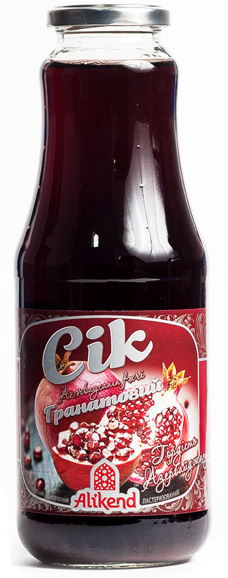


Everyone heard about it. And almost every person on planet Earth tasted it. Some calls it a fruit, some – berry, somebody – just fruit.
In translation from the Latin word “granatus” means “seed”. In fact this berry contains up to 700 of red seeds, the quantity of which differs depending on the variety. In nature, there are 12 types of pomegranate, which are distinguished by the color of peel, seeds, acid content and rate of acerbity.
Pomegranate is called “the king of vitamins”, and its healing properties were praised long ago by Hippocrates and Avicenna. Since ancient times it was considered as a treasure, and first ones to discover its healing properties, were ancient Egyptians.
It is mentioned in the Qur’an as one of the best things created by Allah.


Also it is believed that pomegranate was the “paradise apple” which tempted Eve.
It is considered as symbol of faithfulness – the ancient Greeks believed that the first pomegranate tree was planted in Cyprus by goddess of love Aphrodite. Pomegranate has long been considered the symbol of fertility and wealth, passionate love and justice.
This is vitamins С, В₁, В₂, В₆, В₉, К, Е, РР, a high content of provitamin A (carotene), pectin, organic acids – citric, malic, folic and others fifteen amino acids, five of which – the essential, that cannot be synthesized by the body, tannins (tannins). It contains mineral substances: sodium, magnesium, iron, phosphorus, calcium, copper. Pomegranate has so much potassium in it, that has no equals among other fruits.
Sour tart taste of pomegranate juice not only good to quench thirst, but also improves appetite and digestion. A large number of folacin, pantothenic acid and vitamin B₆ determine its effect on the synthesis and exchange of proteins and in the body fat and carbohydrate metabolism.


Folacin, pectin and tannins make grenades useful for inflammation of the gastrointestinal tract. It acts fortifying in the intestinal disorders.
Pomegranate is leading in content of punicalagin and other antioxidants, which strengthen the the vascular walls and reduce the level of “bad” cholesterol, reducing the risk of plaque formation. Furthermore, punicalagin prevents the development of Alzheimer’s disease, reduce intensity of of inflammatory processes in the brain and slows down age dementia.
Vitamin K plays an important role in metabolic processes in bones and in the connective tissues that slows cartilage deformation, leading to osteoarthritis. Pomegranate juice is rich with phytonutrients that reduce inflammation and reduce swelling of the cartilage.
According to research by the American Association for Cancer Research, eating pomegranate reduces the risk of breast cancer in multiple times.

We can talk endlessly about pomegranate. There is almost ten million articles about the grenade, and pomegranate juice in the Internet, so there is no sense to describe recipes, in which pomegranate juice is used. You can easily read it by yourself.
The only thing we have to say, that we produce a genuine pomegranate juice from Azerbaijan – one of the best in the world.